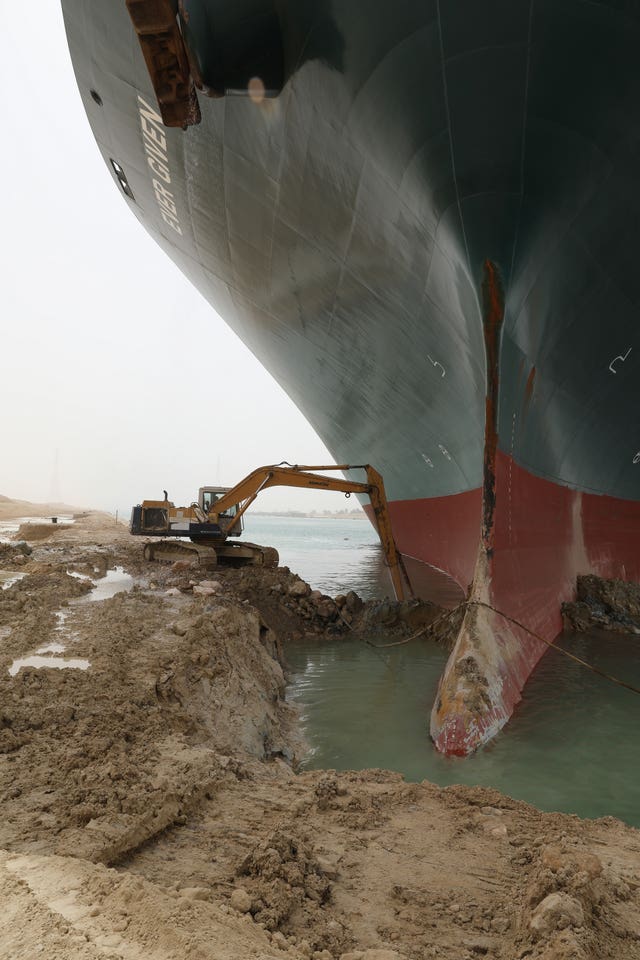
James O'Brien 10am - 1pm
26 March 2021, 12:04

The Ever Given container ship becoming wedged in the shipping route may lead a shortage of some items coming from the Far East.
Some goods made in China might be more difficult to get hold of in Britain amid a global shipping squeeze which has been exacerbated by a container ship blocking off the Suez Canal this week.
High demand had already put pressure on international shipping routes as businesses get ready for the end of Covid-19 restrictions, even before the Ever Given ran aground in the vital waterway earlier this week.
Oil prices rocketed on Wednesday as it became clear that the ship was not going to be easily dislodged. The price of Brent crude oil added another 2% on Friday morning.
The blockage has piled up a backlog of ships waiting to pass from the Indian Ocean to the Mediterranean, or vice versa.

The canal is one of the world’s most important shipping routes, carrying about one tenth of all oil and goods which are transported by sea. This includes furniture, electronics and clothing bound for UK shelves.
“Containerised freight is what gets most goods to most shops. So the whole range of things that people see that are imported, could be in these containers,” said Joanna Konings, a senior economist and trade expert at banking giant ING.
“All of that is either directly going through the Suez Canal, or it’s a product that competes with a product that’s going through this canal.”
It could give producers who are closer to home the chance to dominate the market, at least for a time. This could, Ms Konings said, allow them to increase prices, although that might not be a wise move.
Impacts are also likely to be felt on UK and other global producers who rely on so-called “just in time” supply chains.
Car manufacturers, for instance, often do not hold enough semiconductors in stock, instead shipping them in just before they are needed.
Normally, the conductors are transported in the holds of passenger planes but, during Covid, the reduction in flight number has forced these companies to turn to ships to supply them.
“Even the smallest input can sometimes bring conveyor belts to a halt because you just need that crucial part, and if it’s stuck in a container, then there’s nothing you can really do about it,” Ms Konings said.
Tom Fairbairn, an engineer at management platform Solace, said: “With the already tight supply situation for semiconductors, including a water shortage in Taiwan and a plant fire in Japan, the automotive, electronics and IT industries could be especially hard hit.”
However, the impact of the Suez blockage depends on how long it continues. Initial hopes that excavators and tug boats could get the Ever Given loose quickly seem misplaced, and a company involved in the rescue operation on Thursday spoke of it taking “days to weeks”.
Ocean freight normally plans for a couple of days’ delay on the month-long voyages, but more than a week is beyond normal.
Ships can divert around the southern tip of Africa, but this could add weeks to a trip. According to experts at Kpler, the 24-day journey through Suez from Ras Tanura, an oil port in the Persian Gulf, to Amsterdam is extended to 39 days when rounding Africa.